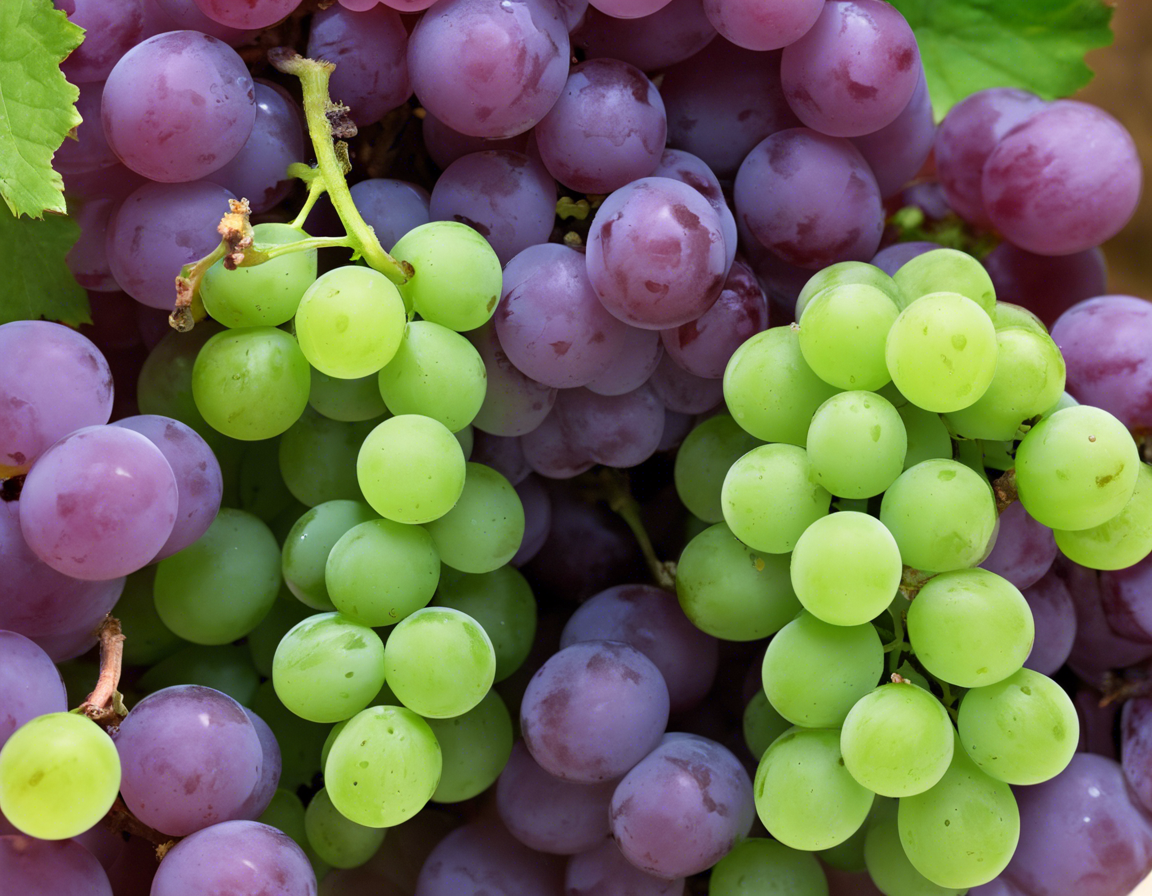If you are familiar with the world of cannabis, you have likely come across terms like cannabinoids and terpenes. While cannabinoids such as THC and CBD often steal the spotlight, terpenes play a crucial role in determining the aroma, flavor, and effects of different cannabis strains. One terpene that has been gaining attention for its unique properties is Grape Gas.
Understanding Terpenes
Terpenes are aromatic compounds found in various plants, including cannabis. These compounds not only give each strain its distinctive aroma and flavor but also contribute to the overall effects it produces. From citrusy and piney to floral and earthy, terpenes offer a diverse range of profiles that influence the user’s experience.
The Grape Gas Phenomenon
Grape Gas is a terpene profile that combines the fruity sweetness of grapes with the fuel-like aroma of gas or diesel. This unique combination creates a memorable olfactory experience that sets Grape Gas apart from other strains. The scent is often described as sweet, pungent, and slightly skunky, making it a favorite among consumers looking for something different.
Common Terpenes Found in Grape Gas
To understand the Grape Gas profile better, let’s look at some of the common terpenes that contribute to its distinct aroma and flavor:
1. Myrcene
- Myrcene is a prevalent terpene found in cannabis known for its earthy and musky notes. It is also believed to have sedative effects, which can contribute to the relaxing properties of Grape Gas.
2. Limonene
- Limonene is often associated with citrus fruits and adds a bright, uplifting element to the Grape Gas profile. This terpene is believed to have mood-boosting and stress-relieving properties.
3. Caryophyllene
- Caryophyllene is a spicy terpene that can provide a peppery kick to the Grape Gas experience. This terpene is also unique because it acts as a cannabinoid by interacting with the endocannabinoid system.
Effects of Grape Gas
The terpene profile of Grape Gas can influence the overall effects of the strain on the user. Some of the common effects associated with Grape Gas include:
- Relaxation: The soothing properties of Grape Gas make it an excellent choice for relaxation and stress relief.
- Euphoria: Users may experience a sense of euphoria and happiness when consuming Grape Gas.
- Creativity: Some users report feeling more creative and inspired after using Grape Gas.
Best Practices for Enjoying Grape Gas
If you’re interested in exploring the Grape Gas terpene profile, here are some best practices to enhance your experience:
- Choose High-Quality Products: Opt for reputable dispensaries that offer high-quality Grape Gas strains.
- Experiment with Different Consumption Methods: Whether you prefer vaping, smoking, or dabbing, try different methods to see which one suits you best.
- Start Low and Go Slow: Especially if you are new to Grape Gas or cannabis in general, start with a small dose and gradually increase as needed.
Frequently Asked Questions (FAQs)
1. What are terpenes, and why are they important in cannabis?
Terpenes are aromatic compounds found in plants, including cannabis. They are important because they contribute to the aroma, flavor, and effects of different cannabis strains.
2. What sets Grape Gas apart from other terpene profiles?
Grape Gas stands out for its unique combination of grape sweetness and fuel-like aroma. This distinctive profile offers a memorable olfactory experience.
3. How can terpenes like Myrcene and Limonene enhance the effects of Grape Gas?
Myrcene is known for its sedative properties, adding to the relaxation effects of Grape Gas, while Limonene can contribute to a bright and uplifting experience.
4. What are some common effects associated with Grape Gas?
Common effects of Grape Gas include relaxation, euphoria, and enhanced creativity. Users may also experience stress relief and a sense of well-being.
5. What should users keep in mind when trying Grape Gas for the first time?
First-time users should start with a low dose of Grape Gas, choose high-quality products from reputable sources, and experiment with different consumption methods to find what works best for them.
In conclusion, Grape Gas is a unique terpene profile that offers a blend of fruity sweetness and fuel-like aroma. Whether you’re looking for relaxation, euphoria, or creative inspiration, exploring Grape Gas strains can provide a one-of-a-kind cannabis experience. Consider the tips and best practices mentioned above to make the most of your Grape Gas journey.

